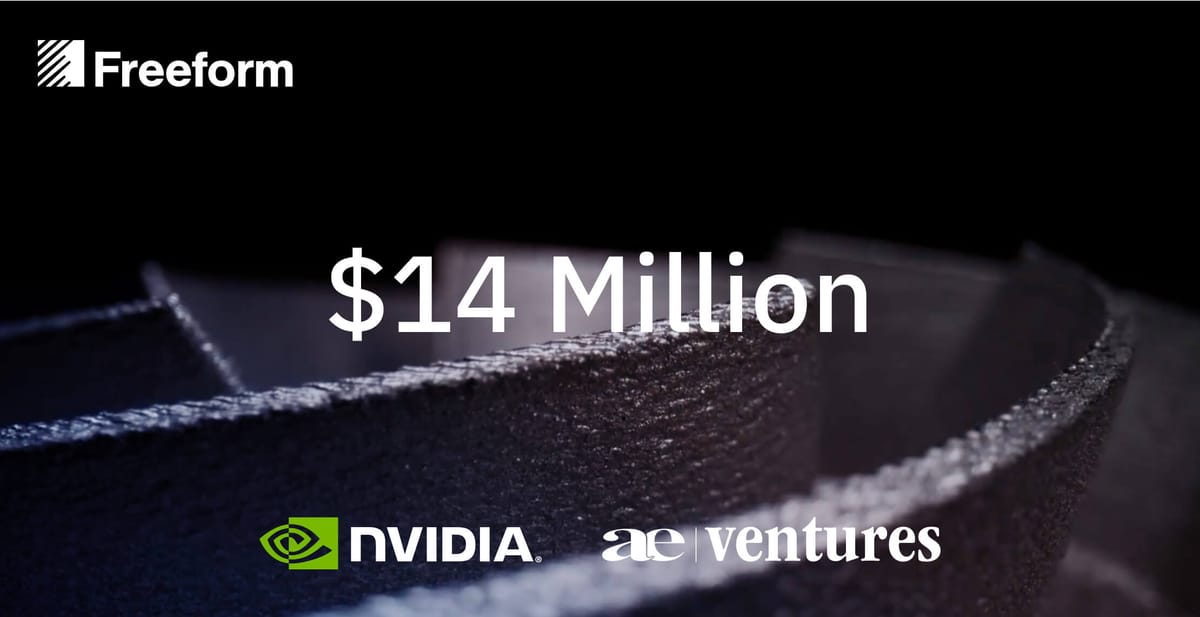
Freeform, a Los Angeles-based startup reimagining metal 3D printing with artificial intelligence, has raised $14 million from NVIDIA's NVentures and Boeing's AE Ventures. The company aims to tackle the persistent challenges of quality control and scalability that have held back widespread adoption of metal additive manufacturing.
Founded by former SpaceX engineers Erik Palitsch and TJ Ronacher, Freeform takes an unusual approach to metal 3D printing. Rather than selling printers, the company offers manufacturing as a service, using AI-powered systems that monitor and adjust the printing process in microseconds.
"We saw the potential of metal printing to transform any industry that makes metal things. But adoption has been slow because of three things: inconsistent quality, slow speeds, and astronomical costs," says Palitsch, who previously served as principal architect of SpaceX's Merlin engines.
The investment brings notable strategic benefits. Through NVIDIA's Inception program, Freeform gains access to advanced GPU hardware crucial for its AI systems. Boeing, through AE Ventures, is closely collaborating with Freeform, even vetting its capabilities for future aerospace and defense components. The investment also supports expanding Freeform’s portfolio to produce a wider range of metal parts—from rocket engine components to automotive exhaust parts.
Freeform’s high-speed computer vision and AI enable real-time adjustments, ensuring precise and reliable production. The combination of advanced sensing and NVIDIA’s accelerated computing technology allows Freeform to guarantee that every printed part is digitally verified, addressing the consistency issues that have long plagued the industry.
Mohamed Siddeek, corporate vice president at NVIDIA and head of NVentures, sees broader implications for manufacturing: "Freeform is leading the way toward autonomous manufacturing using accelerated computing. Their use of real-time AI-driven process controls sets a new standard for metal additive manufacturing."
The company's customer base spans aerospace, automotive, and energy sectors, with applications ranging from rocket components to Formula 1 car parts. Freeform plans to use the new funding to increase production capacity and expand its team to roughly 55 people over the next year.

